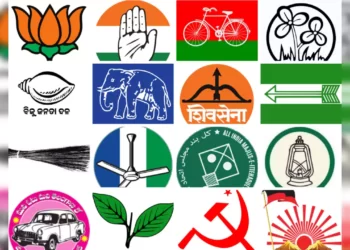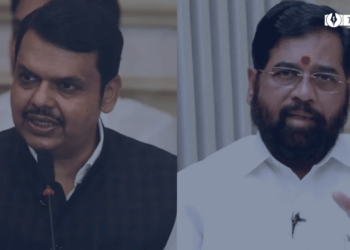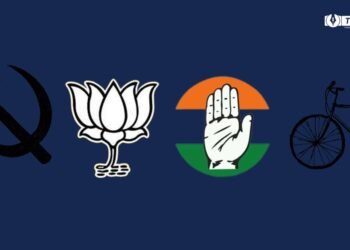[ad_1]
‘We, the people of India, having solemnly resolved to constitute India…’ thus begins the Preamble to our Indian Constitution. When I am in learning spaces with young students, we refer to the Preamble as the collective dream of the nation to which our individual dreams are forever tethered to. At the core of this collective dreaming is Neeyat, or intention. The intention has always been to make the space for every Indian to flourish. And while it has been incredibly difficult to break out of the shackles of caste and capital, we have more or less bumbled along in this direction precisely because this intention is a powerful medium of imagination. Incidentally, a similar intentionality or Niyyah lies at the root of Islamic belief – no action is acceptable without pure intentions.
And so I want to invite you, the reader, to listen to some of the voices that are at the centre of the hijab controversy that is still being fanned by Hindu nationalist groups.
For those unfamiliar with the issue, women students in hijab have been banned from entering their schools and colleges. Even though they are protected in many cases by school rules that permit the hijab, and in all cases by the constitutional right to education and religious practice, this stand-off has spread swiftly across the state. These women students have repeatedly told the media and others that they want to study. They have reiterated numerous times that the hijab doesn’t stop them from fulfilling their responsibilities as students.
‘Education is our weapon. All girls must study.’

‘Don’t cause stress, Sir. We have enough exam stress.’
‘I want to be independent’.
‘I want to be a lawyer’
‘I want to be a wildlife photographer’
‘I want this to end. I want to just study and become someone in life’
‘The media isn’t presenting our side. You tell them.’
‘I deserve to be safe in college’
If the silent majority of this country listened to the passionate, vocal women who’re articulating themselves today – they’d hear many volumes of thought and intention. And yet these assertions seem to not be enough. Elected leaders, political parties, institutions, the media, and fellow citizenry simply do not consider them worthy of being listened to. In a patriarchal context where younger women have to fight even harder to be heard in almost every space, they move in, these hijab-clad women are further disadvantaged. The Savarna men and women sitting in these positions of power simply cannot fathom women in hijab asserting their rights loudly and clearly. They’re invited to speak at meetings meant to resolve the stand-off and invited to speak at newsroom debates, but they’re met with bizarre fake narratives, abused for being angry, and mansplained into how to think. They’re blamed for standing up to a threatening mob of men, they’re accused of being controlled by other agendas. The women who make sharp observations about Hindu markers and practices that are normalized in educational institutions, and who point out that uniformity in a pluralistic nation like ours only feeds majoritarianism, are unheard. The stories of the educators who stood up to the mob and kept the women safe in college, is quickly brushed aside.

The women push back louder and clearer – fighting to be heard. ‘It’s only my head that is covered, not my brain’, they say. But no one is listening.
Muslim teachers and students are being forced to remove their hijabs at gates and in college hallways to be able to access their jobs and their education – their protests at this assault on their sense of self and dignity are unheard. They are filmed in these acts of coerced disrobing by a gawking media that sexualizes them, playing the videos on their channels over and over again – their protests at being filmed without consent is unheard. Their helplessness at not being able to continue their choice of education with hijab and job with hijab is unheard. Their angry responses to the false information peddled by college authorities are unheard. The grief of the women when they ask ‘why is noone supporting us’, ‘Why won’t my friends speak to me now’, ‘Why is it only people from the Muslim community who come to see us’ is unheard.
Each one of these acts of unhearing is a political choice, one that denies agency to the people whose immediate moment and whose futures are most impacted by these orchestrated scenes.
So who is considered worthy of being listened to?
The leader who leaks names and addresses of the women students; risking their safety and putting them further in line of possible violence, making serious defamatory accusations without proof is heard loud and clear. So far he has faced zero repercussions for this despicable act.
Teachers and principals, already radicalized to an extent where they forget their duty as educators, yell loudest about what’s right. They give in to the demands of the mob and parrot the same arguments as them, and are heard as people pushing for discipline and uniformity.
The non-hijabi Muslim woman who calls all hijabs oppressive is heard, furthering the narrative of hijabi women in need of saving. And also heard without irony are the men who distribute shawls to male students and incite classmates against each other, and those who advocate for markers of other religions in classrooms.

The Kannada language news channels especially unleashed unspeakable violence on the psyche of the Indian Muslim Woman, and fellow citizens who gawked at the spectacle left their legitimate rage unheard.
Each action in this whole saga by every leader and institution has targeted Muslim women in dehumanising acts of discrimination and erasure. The timing of these acts, the manner in which they played out, and the languaging used all indicate the same intention – that of forcing them indoors, unable to speak for themselves or choose their way of life.
And then there’s the government whose toxic leadership masquerades as efficient governance. There’s a long list of communities that this government has left unheard – Muslims and other marginalized groups who were most impacted by the CAA-NRC-NPR combine, farmers impacted by the three farm bills, migrant workers and health workers in the pandemic, Transpersons impacted by the trans bill, Adivasis impacted by the draft EIA – never once acknowledging the dissenting citizen as a key stakeholder in the democratic process. And worse, pitting citizens into cycles of hate and violence by deliberately manipulating the public perception of dissent.
How then does one break away from this web of violent intentions?
The act of listening lies at the core of the contract of democracy – Leaders and institutions need to listen to the citizenry, and citizenry needs to listen to each other. I hold hope for a considered and spacious listening between citizens. The kind that blurs the lines between various constructions of reality – between mine and yours, yours and hers, ours and theirs, and so on, until we are able to see each other’s messy plurality and complex realities for what they truly are. This kind of listening is an intentional political act that can propel us into being the genuinely plural India that so many of us dream of.
I urge you, dear reader, to pause in the onslaught of inherited thought and fake narratives so you’re able to choose wisely who and what you listen to.
Also Checkout: Removal of the Hijab: A tool to further marginalize Muslim women in India
[ad_2]
Source link









